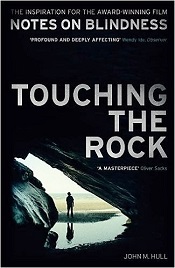Third Sunday of Ordinary Time, Year C; St. Ann's.
Good news for the poor, for the captives, for the blind, for the oppressed. I wonder when you hear that list, whether or not you think you’re a part of that or not. I imagine different people here hear that list differently.
For people who do hear themselves as named in
that list, in a way there’s no need for me to preach; I can just sit down!
Jesus has done it for me, far better than I ever could. He has spoken words
that were praised, words that amazed, words with authority. With his whole
life, he was poor and oppressed and is with the poor and the oppressed in a special
way still. From his arrest until his execution, he was captive and is with
those who still are captive in a special way still. Theologian John Hull, who
is himself a person who is blind, has written that Jesus too knew blindness,
when he was blindfolded and struck repeatedly during his trial. Very different
from a life of visual impairment, but for John Hull, at least, a profound moment
of connection with Christ. The good news is that Christ himself is the
fulfillment of this promise from the prophet, that Christ shows, that Christ is,
the closeness of divinity to those who suffer in these ways. That all suffering
and sorrow will come to an end, and every tear will be wiped from every eye by
one who knew poverty, oppression, captivity, and blindness.
So, what about everyone else? Is there good news
for everyone else too? Yes. Abundantly so. It comes in two forms.
One is that if God has told us that he is
especially close to some group of people, and we want to be close to God, we
know where to go to find God. At the end of Matthew’s Gospel, he tells us that
whenever we serve the poor we are encountering and serving Christ. I know I’ve
found that to be powerfully true in my life. I may have mentioned before that
before I entered seminary, I was a math teacher, and I spent two years teaching
inside San Quentin prison. There were many ways in which that experience was powerful
and changed my life. One was that I was working with so many people that were
doing so much to turn their lives around. Some of them saw education as a path
to a job that would allow them to avoid returning to destructive behaviors once
they got out of prison. Others, and these were some of the most inspirational,
knew they were not getting out, either at all, or for a very long time, and saw
education as a way to give their lives some purpose and meaning while they were
inside. It was forming real relationships with my incarcerated students, with
the captives, that I caught the bug of that spirit of conversion of life, and I
started to ask what I was doing with my life, a set of questions that led me to
seriously discern priesthood and religious life.
The second way this passage gives good news to
those who cannot find themselves literally on this list is via metaphor. There
is a real, metaphorical, but that doesn’t mean not real, metaphorical sense in
which we are all made captive by sin. Sins like pride, jealousy, fear, lust,
prevent us from being free to choose love, holiness, and virtue. Even if we are
the richest person on earth, we do not have the reaches of Eden, from which we
have been cast out by Adam’s sin. We are impoverished relative to God’s
original creative purpose for us, and God’s dream for our end. For us to truly
understand what it means to be held captive by sin or impoverished relative to
Eden, to understand how good it is to be promised release from that, we have to
actually encounter the literally poor, the literally captive, the literally
oppressed. We can’t spiritualize those words away from people who have flesh
and blood experiences of those things, who know them in their bones. But we can
encounter the spiritual meanings of them through real knowledge of bodily literal
forms of them.
God will enrich us. God will free us not just
from sin in general, but from our sin. There’s a brilliant line from Marilyn
Robinson’s Gilead; she says that if you want to imagine the pains of
hell, don’t stick your finger into a candle flame, but remember your worst sin
and imagine being stuck there. God will save us from that, if we let him, if we
don’t stay aloof from those to whom he’s closest. And that’s good news.

No comments:
Post a Comment